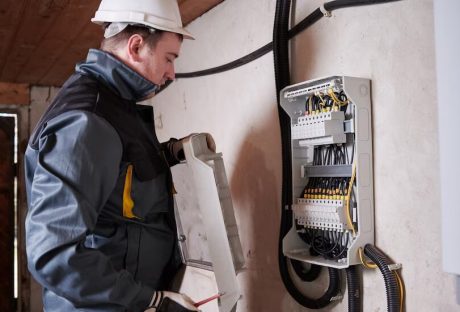Deciding to buy a home warranty plan is a smart move for homeowners. However, with so many providers and options out there, picking the best one might feel overwhelming. Luckily, there are many things a homeowner can research to ensure they select a policy that will serve them well.
Home warranties are different than insurance. Home warranty plans are supplemental contracts that cover common household repairs. Policyholders have monthly or annual premiums and pay a discounted rate for qualified service calls. Here’s what potential buyers need to ask when looking at homeowners’ warranty policies.
What Does The Plan Cover?
Not all home warranties are the same. One plan might cover household appliances, but another might include systems. Air conditioning coverage isn’t always included or might only be offered as an add-on. The same goes for refrigerators. Systems include electrical, plumbing, and water heaters, but once again, not all policies cover every system. Optional coverage options could include sump pumps or septic tanks.
Before signing on the dotted line, double-check what the preferred plan covers. Take inventory of all appliances, and compare the list to several policy options. For example, a built-in microwave might fall under optional coverage. Selecting the right amount of coverage now will save money down the road.
How Much Is The Premium?
Sticking to a budget when shopping for a home warranty is important. The cost depends on a number of factors. High-coverage plans with additional add-ons will be more expensive than a standard policy. That’s why asking about the price before picking a plan is essential.
The premium is how much the policyholder pays for the plan. Some companies charge a lump sum annually, while others divide the premium into monthly payments. It’s also wise to inquire about any deductibles required when making a claim.
How Long Is The Waiting Period?
Most home warranty providers have a mandatory waiting period before paying benefits. The most common is a 30-day period. Further, a coverage gap between policy renewals might trigger another waiting period. Before signing the contract, find out when benefits will be in place.
What Are Current And Past Customers Saying?
The goal of a home warranty agent is to sell a policy. Of course, they will sing the highest praises about their company to lure in new customers. However, are they telling the complete truth? Instead of believing an agent, find out what other customers have to say.
Customer reviews are the best way to get an honest, blunt opinion about a home warranty provider. Read all the reviews, including the good and the bad. What compliments does this provider receive the most? What are their weaknesses? Online home warranty reviews help homeowners make a more informed decision.
What’s In The Fine Print?
Home warranty plans are long and often hard to read. However, buyers need to read every word, including the fine print. Look for any exclusions, such as pre-existing wear, cosmetic damage, or manufacturer warranties. The right plan will be upfront and easy to understand.
Get A Quote And Repeat
Home warranties save homeowners a bundle on appliance and system repairs. However, picking the right one takes time, research, and effort. Ask all the questions mentioned above when comparing plans, request a quote, and repeat the process with another provider. Doing so will ensure the warranty you ultimately select serves you well into the future.























